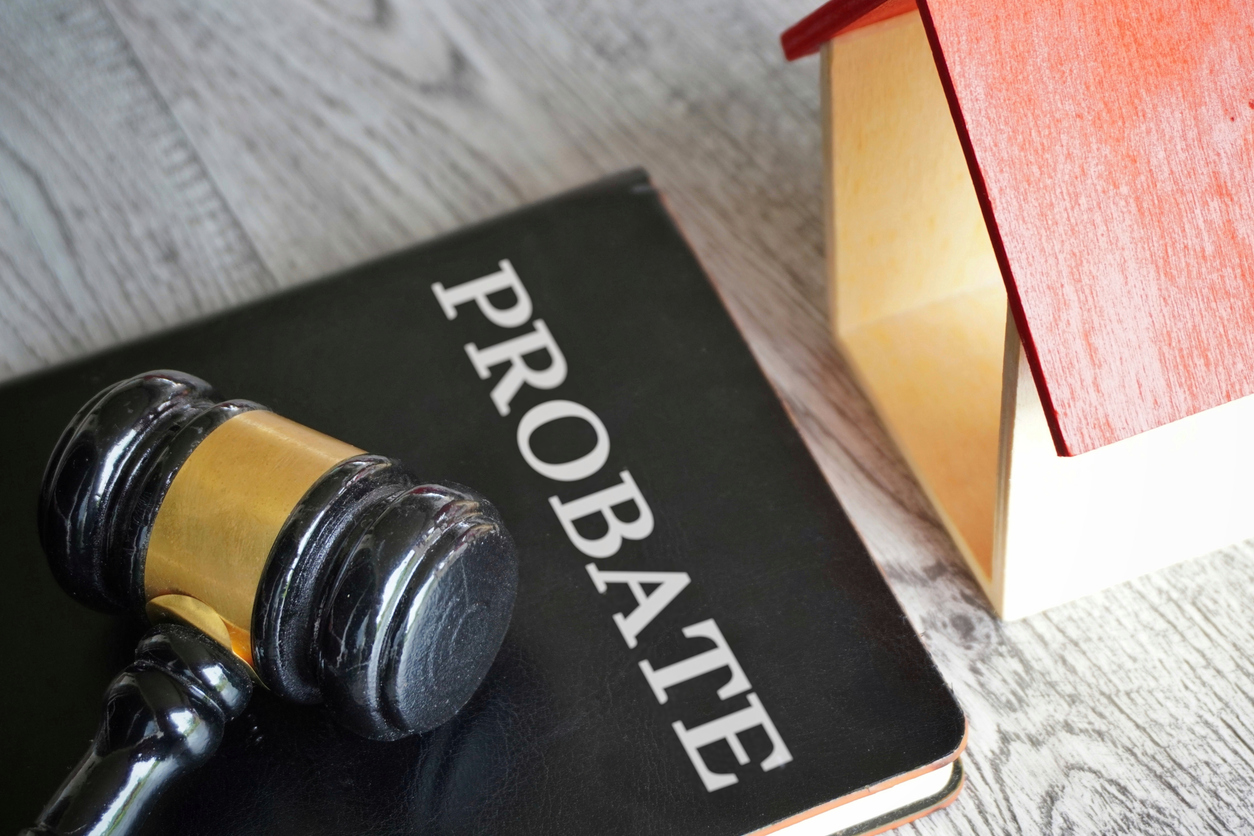Probate is the process of settling a deceased person’s estate, with court oversight. Depending on the size and complexity of the estate, there might be very little court involvement, or there could be a great deal. Probate can be complicated, especially for larger estates where there isn’t an estate plan, but most of the time the probate process is not disputed.
In some cases, though, a person who has an interest in the estate feels the need to challenge some aspect of its administration. When that happens, they may take legal action in the probate court. That is probate litigation. Let’s take a look at some common probate litigation matters, how they can be resolved, and how you may be able to prevent probate litigation regarding your own estate when the time comes.
Why Would Someone Initiate Probate Litigation?
A probate litigation matter is usually triggered by the same general factors that cause other litigation:
- The claimant believes that something is unfair and wants to protect their rights
- There is a lack of clarity or disagreement over a document’s meaning, and court interpretation is needed
- The claimant believes that another party is engaging in misconduct or not fulfilling their duties.
Unlike with other types of litigation, such as a business contract dispute, however, probate litigation usually has a personal component. The dispute may be resolved in court, but relationships between family members may be permanently damaged by the conflict. That is why the best approach to probate disputes is to prevent them from arising in the first place.
Frequent Issues in Probate Litigation
The basic themes of perceived unfairness, lack of clarity, or possible misconduct in estate administration may show up in one of the following ways:
Will Contests
Challenges to the validity of the deceased person’s (decedent’s) will are among the most common probate litigation matters. Probating a will that is not valid for some reason might violate the decedent’s true wishes and could be unfair to heirs and other interested parties. A will might be contested for one of the following reasons:
- Improper execution: If the will doesn’t meet the legal requirements for a valid will, such as being signed and (in most cases) properly witnessed, it is not valid.
- A more recent will exists: The execution of a new, valid will revokes and invalidates all previous wills. If the will being submitted to probate is not the most recent, it is no longer valid.
- Lack of testamentary capacity: If the testator lacked the mental capacity to understand that they were making a will, the general amount and nature of their assets, or who their natural heirs were, the will is not valid.
- Undue influence: If someone exerted pressure (undue influence) on the testator, substituting their own will for that of the testator, the will is not valid.
- Forgery or fraud: If the will or the signature on it was forged, or the testator was defrauded into signing a will without understanding what they were really doing, the will is not valid.
Misconduct of Personal Representative
The personal representative of the estate (sometimes referred to as the executor of the will) is a fiduciary. That means they are obligated to act in the best interest of the beneficiaries of the estate rather than their own.
If heirs or beneficiaries believe that the personal beneficiary is failing to fulfill the obligations of their role, or worse, actively engaging in executor misconduct, they may initiate probate litigation. Specific reasons for legal action against a personal representative include:
- Failure to file documents in a timely fashion and properly inform heirs of estate developments
- Unreasonable delays in estate administration
- Failure to maintain estate property
- Negligence in a resolution of debts and taxes
- Favoring one heir over another without a legal basis
- Mismanagement of estate assets
- Self-dealing or conflict of interest
- Failing to distribute estate assets
Disputes Among Beneficiaries
The distribution of estate assets is not only a legal and financial matter, but a highly emotional one. Disputes among beneficiaries of an estate are more likely to lead to probate litigation when there is previous conflict, such as between the surviving spouse and the children of the decedent’s previous relationship, or between siblings who have always had a contentious relationship. However disputes between beneficiaries can arise in any estate matters.
Common issues include:
- Perceived unfairness in the distribution of assets
- A belief that the distribution of assets does not reflect the actual wishes of the deceased
- Disagreement over the valuation of certain assets
- Disagreement over the use or management of certain estate property, like a vacation cottage, while probate is bending
- Disagreement over the distribution of certain items with sentimental value
If, as often happens, one of the beneficiaries involved in a dispute is also the personal representative of the estate, claims of personal representative misconduct can arise as well.
Dispute Resolution Options for Probate Matters
Probate litigation (like all litigation) is, by its nature, adversarial. That may be fine when the parties to litigation don’t need to have a relationship going forward, but the conflict of probate litigation can tear a family apart—the opposite of what the decedent probably would have wanted. A negotiated resolution may preserve fragile relationships that would be destroyed by litigation.
Working with a probate attorney as soon as a dispute arises can help to head off litigation; an attorney may be able to help negotiate a resolution that does not require court action. Another option is probate mediation, in which a neutral third party helps the parties to a dispute arrive at a mutually agreeable resolution without going to court.
How to Prevent Probate Litigation
As mentioned above, the best option for dealing with probate disputes is to prevent them from arising in the first place. The best way to do that is by careful drafting of a clear and comprehensive estate plan.
At Estate Planning & Elder Law Services, our experienced estate planning attorneys will discuss not only your assets and wishes but your family dynamics with you, and develop a customized estate plan designed to achieve your goals, ensure that your wishes are honored, and prevent conflict between your loved ones.
To learn more about our estate planning services, or to be referred to a probate litigation attorney in the event you are already dealing with a probate dispute, contact our law office to schedule a consultation.





